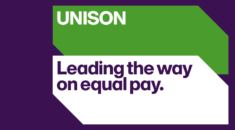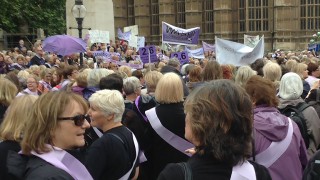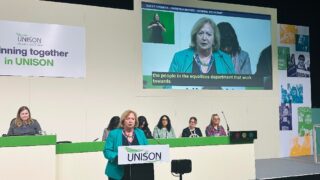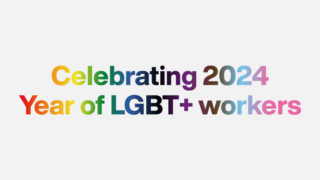Speaking at UNISON’s annual women’s conference in Brighton today (Friday), General Secretary Dave Prentis said:
“Women are being hit hardest by government cuts and by changes that restrict access to justice, like those to the legal aid scheme. It’s a vile by-product of austerity, but above all it is a political choice.
“Every year, too many women die as a result of domestic violence. The lack of preventative and supportive services mean women and their children often suffer in silence. Cuts to local councils have meant fewer domestic violence workers, fewer refuges and fewer options for women to protect themselves and their families. This increasingly desperate situation makes trying to leave a manipulative abusive partner even harder.
“Those who are able to speak out and who do manage to get to court often have to represent themselves against their former partner. Only a heartless, unfair society would allow this to happen.
“The cuts to legal aid mean survivors now have to show long-term evidence of violence if they want to qualify for legal aid – a scheme many in our society have relied upon for years. But unfortunately this government has no interest in helping the most vulnerable, and it seems that women are very definitely not top of the list.
“In the workplace, sex discrimination claims have plummeted by 83 per cent. Not because there’s been a huge decline in discrimination – if only – but because of punitive employment tribunal fees. Forcing women to pay upfront before they can take a case means it is now much harder to get justice – leaving unscrupulous employers free to continue to treat workers badly.
“But no bill, cut or law will ever stop UNISON fighting. We will never stop fighting for those who care about equality in the workplace, about maternity leave and the gender pay gap.
“Today’s announcement that the government is to make large companies publish their gender pay gaps is welcome but simply doesn’t go far enough in ending the glaring inequality that still exists between men and women. It should not just be big firms that should have to prove their equal pay credentials, but medium-sized and small ones too. There’s a huge divide both in the public and private sector, in workplaces up and down the country.
“The Equal Pay Act was brought in 45 years ago, yet women still find themselves on substantially lower wages than male colleagues. While this move will undoubtedly make companies more accountable, as a measure on its own it will not have the required impact to bring about the degree of change necessary to end the UK’s gigantic gender pay gap.”
UNISON media contacts
Fatima Ayad T: 020 7121 5255 M: 07508 080383 E: f.ayad@unison.co.uk
Alan Weaver T: 020 7121 5555 M: 07939 143310 E: a.weaver@unison.co.uk
Liz Chinchen T: 020 7121 5463 M: 07778 158175 E: l.chinchen@unison.co.uk









